#i love the themes it explores and the insight it provides for his character. so good
Text
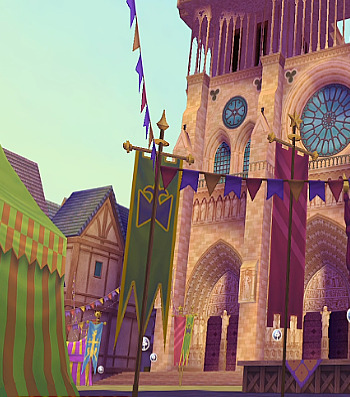
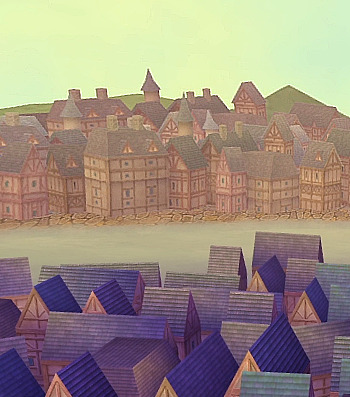
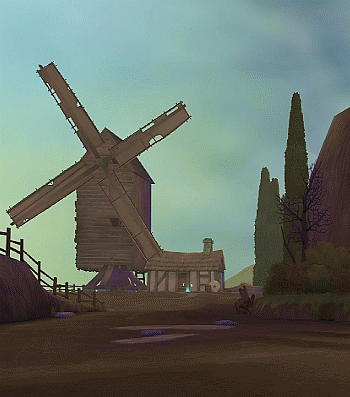
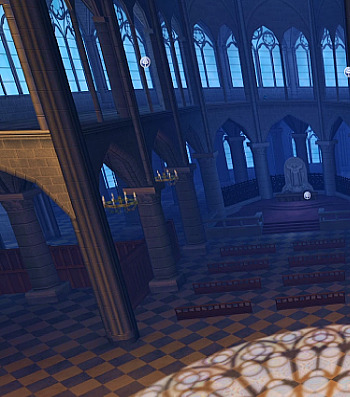
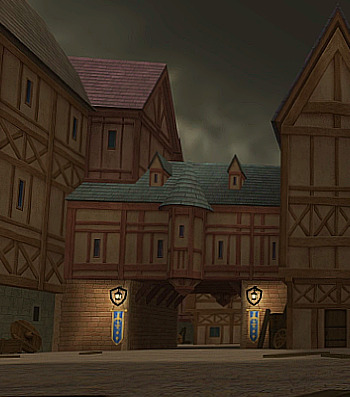
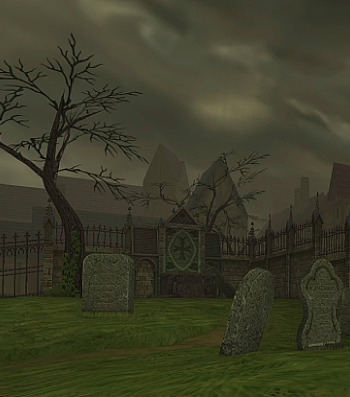

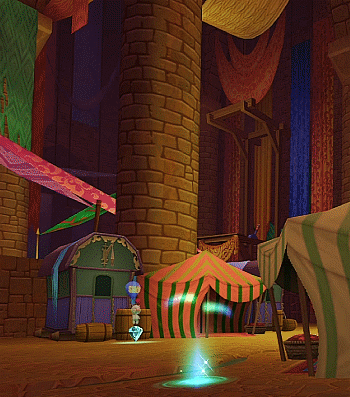
Kingdom Hearts Dream Drop Distance - La Cité des Cloches
#kingdom hearts dream drop distance#khddd#la cite des cloches#scenery#my gif#the battle music that plays here creates such a cool and grand atmosphere#i'm so used to spending most of my time in the town or at the cathedral that i forget how dark and gloomy this world can be#sora has to walk past thousands upon thousands of skeletal remains and we don't even get a single cutscene of him reacting to any of it#but i like that there are at least some big open spaces that let you go crazy with flowmotion and climb up the tall buildings and towers#and that you can actually climb up the cathedral from the town square below#but one of my favorite parts in the whole game is playing through riku's side of the story in this world#i love the themes it explores and the insight it provides for his character. so good
187 notes
·
View notes
Note
Okay HI hello 👋👋
I saw ur art about Sun & Moon through a reblog and I am such a simp for those two omg so here's a rant :33
(Also if you're not comfy with this pls ignore this rant then, and I am so sry if that is the case!! Will stop immediately if you tell me to /srs)
-------------------------------------------------
CAN I JUST SAY I am sosososososo in love with your desgin for the dca cuz holy shit I have never seen anything hotter. O.O LIKEEE THE HUMANOID VERSION??!?!!?? UGH soooo goooodd 🥵🥵 I love the designs and the- the little EARRINGS as well?!??! Omg sooooo cutee aaaaaa 💞💞
and-and omigosh UR ART IS SO GOOD AS WELL!?!? I straight up just wanna munch it. I am eating ur art fr. In LOVE with ur artstyle it's so yummy 😍
Anywhoooo I also scrolled through your dca tag aND *GASP* ECLIPSE?????? 😍😍AND I?? WANNA??? BE ENVELOPED????? BY HIMM??? (I feel like mans would give THE BEST cuddles on the planet!!!)
HOLLLYYYY SHITTTT thE SIZEEEEEEE
Big tall omigoshhhhhhHHH M- my brain- my heart my- mY EVERYThIng is mELTING! ! ! ! ! Literally his size just does something to me I cannot comprehend why omigosh
(*lays in a puddle on the floor*)
I can imagine sosososo many different scenarios where that height could be used aaaaa >~< <333 ;P
-------------------------------------------------
Omg if you have any HCs (and *wanna* share, ofc.) about him (Or about Sun & Moon) I'd love to listen to you ramble about them??? <333
So curious about ur HCs & would absolutely love any crumbs about the dca ksskksskkdkdjdks ❤️😂
Uhm uhm first off, thank you so much I can't rlly put into words how sweet this is and I totally don't mind the rambles because me too. And also because its been YEARS since I last used Tumblr or did anything answering Ask is a bit tough for me.. MmMM
Although I don't have many HC at the moment.. I can however give you a little insight I have regarding my Human DCA :]
Moondrop (Moon) and Sundrop
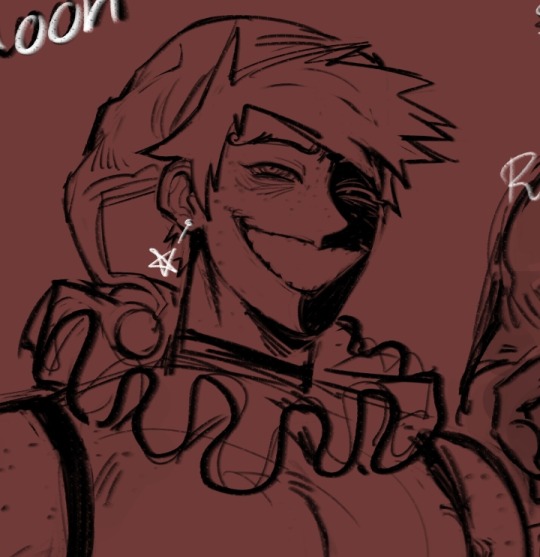
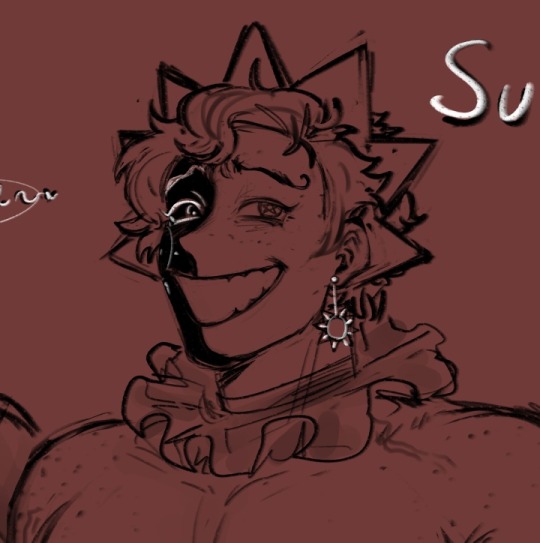
- when I first designed Moon (after the game came out) he had a much wilder look to him, especially the face because I was really into the idea of him being simply insane hence the red.
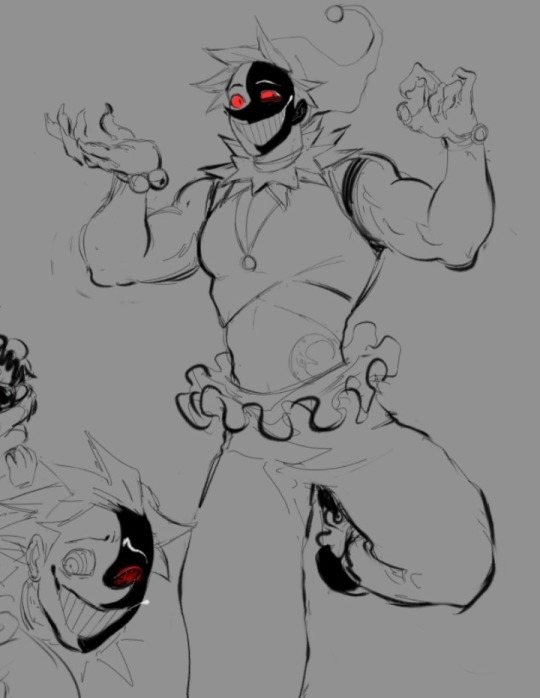
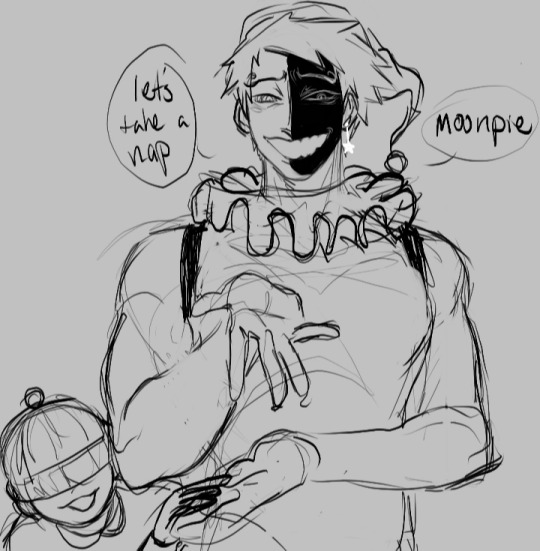
- later when i got back to his design and adding colours I thought that it would be fun to make it Blue and white themed, which I actually didn't see a lot back then
- he wasn't supposed to look human even as a Humanoid, I liked to think that Sun & Moon simply had a renovated body. They are just as much Animatronics as they had always been, robotic parts and everything but with a bit of twist
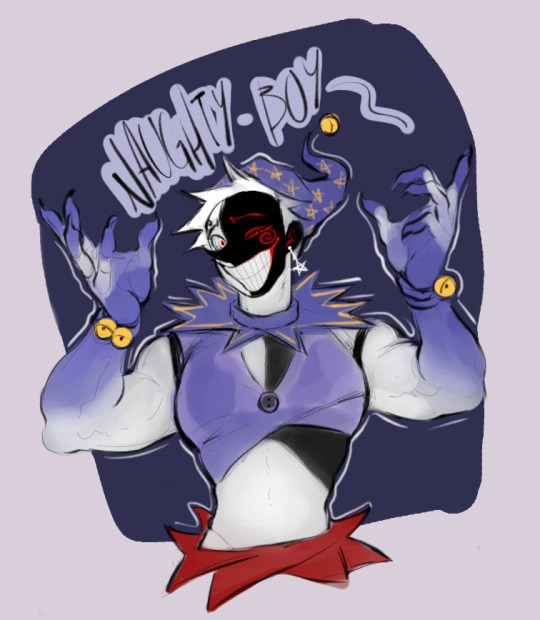
- So then onto Sun.. the thing is its sad to say but I never explored much with Sun's design back then as much as I did with Moon, so I can't provide a good reference
- although I had a rough idea of how sun would look like I never quite liked the way I drew him, so he's always somewhat been stuck in this unfinished stage
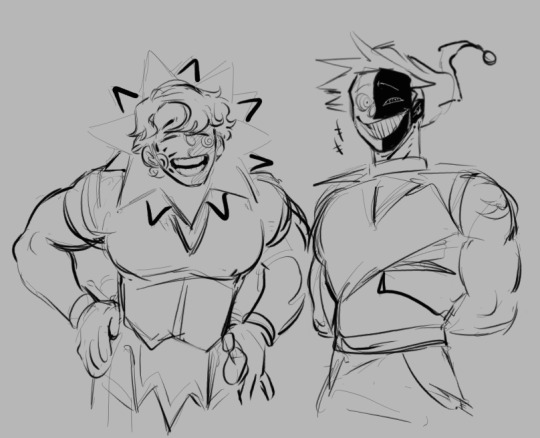
- Then there was eclipse, who was my absolute FAVORITE at that time, I don't think I loved a character MORE THAN ECLIPSE EVER when I was drawing him out
- yes!! It was very much inspired by the 3D render shown here as the ref, though I did make some changes of my own to the design as well
- I had a lot in my head when I was drawing him, but the one thing that I loved most about this design still to thisq day is rhe face. The way I him to look back then was sort of a mix between my Sun and Moon designs, only leaning more towards Sun in colours and Moon in appearance with the crazed look in his eyes
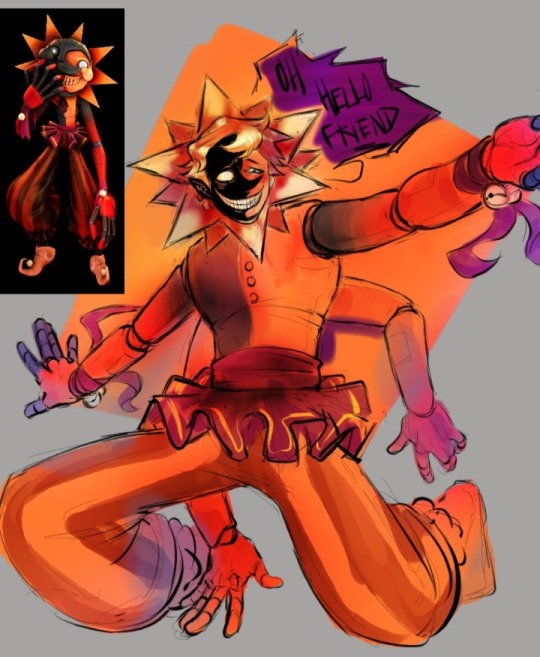

The height was just a funny little thing I thought of, cuz imagine this giant fkn ahh robot just comes in here and picks you up 💀 god I would piss myself
Cough..
So in regards to the new design, I did kind of get rid of the animatronic feel to him that I had done with the DCA and his old design, all of them now look a whole lot more Human which is what I intended for
Eclipse has a few scars around his body; right forearm, left side of his torso that leads all the way up to his chest. Plus a bit of his face that is burnt which you can't exactly see because of the Black spots
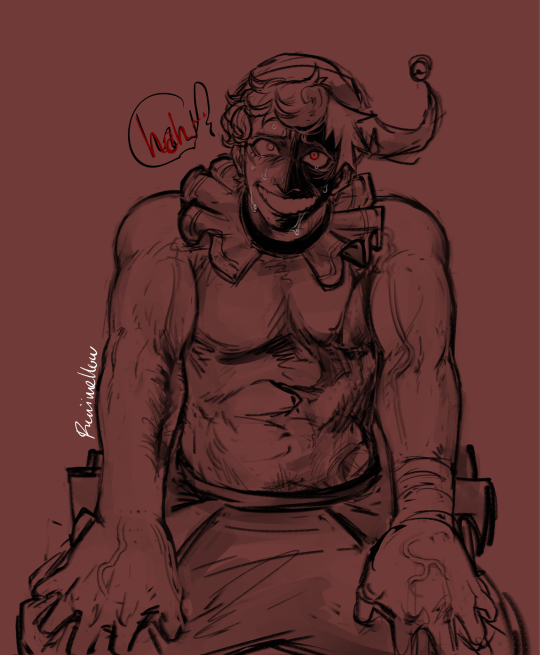
Overall I like my newer designs quite a lot and has also changed a lot, this is probably the most insight you'll get out of me abt my art 😭😭 cuz I don't usually ramble this much otherwise
I might come up with some head canons at a later date, but they'll be fun thats for sure ;)
#rants n rambles#ruiis art#digital art#fnaf security breach#humanoid#moondrop#sundrop#eclipse#eclipse fnaf#fnaf daycare attendant#DCA
31 notes
·
View notes
Note
omfg pls pls do a TL s3 rewrite/au you could do it a million times better and actually keep the characters true to themselves rather than make them sitcom-victims
I am ITCHING to.... there are so many half baked ideas for S3 rewrites floating around in my head. I actually like so many of the elements the show introduced, I just hate where they went with it.
I yearn for those glorious moments in 3.01 & 3.02 where it looked like the show was actually going in the direction of giving Roy some self-doubt around his coaching career, how he felt like he had to step up in Nate's absence and would be lacking. How he's clearly someone who had a massively successful career out of doing the most of his innate talent and blatantly sucks at being a beginner at anything and will outright refuse to do things he can't do perfectly. Alas, for most of the season, we got Roy being a punchline :(
ZAVA oh my god. They could have done. SO many things with Zava. The team's reaction to Zava. Jamie's reaction to Zava. ROY'S reaction to Zava was criminally understated.
Keeley's whole office plotline. I actually really liked how they introduced Shandy, because she provided a very clear contrast to how Keeley's life used to be pre-series vs how she's now AND she genuinely had good insight! While being terrible at other parts of the job! It could have been a great tool to explore themes of classism, Keeley coming into her own in a supervision role, giving us a glimpse of WHAT Keeley's life is like separately from whatever ongoing relationship she's in. (I have so many thoughts about how she apparently cut down heavily on her social life once she started hanging out with Rebecca / living with Roy.) I also have so many thoughts about how Keeley's career change must have looked like FOR HER; the show in 2x12 frames it as "leaving Richmond", but there's so much involved in a decision of making such a drastic career change! Her life completely changed in a year and a half! Keeley Keeley KEELEY. (I think about her a normal amount)
Trent and Ted. Trent and Roy. Trent and Colin.
Nate's arc could have been about him struggling with the man-management side of the job. We also saw in S2 that he resented Ted getting credit for when his tactics saved the day, and Roy told him it was part of the job description — the boss takes the praise but also takes the heat when things go badly! I would've loved to see Nate dealing with that side of the job as well.
I would remove the sex tape leaks plotline altogether. If anyone has his sex tape leaked it should be a grainy VHS of Roy on holiday circa 2003. And give Keeley the chance to step up and do her JOB in a cool way in different circumstances.
... and like five other different things. S3 gives me brainworms in the way "shoddily written piece of canon with SO much potential" always gives me brainworms
14 notes
·
View notes
Note
BROOOOOOOOOO. (sorry if the following is cringe, i am a little drunk at a party but i saw your ask about favourite stories. and now I'm in the loo for a second typing up this reply)
so. scylla and charybdis is a MASTERPIECE and I will review it soon.
the shack at the end of the lane makes me SOB.
sparkling cyanide is a work on language and the meaning of freedom of rare beauty (and also. how. in very few words you say the world)
your latest on merope (i won't even try to write the name from memory) but it made me UGLY CRY. that "I'm mucky" stuck in my brain and now i am severely emotional just thinking about it fuck my makeup.
bookbinding is a masterpiece of a romcom and inhuman resources made me squeal (too much time with roddy's missus lol, and my poor roddie getting his arm bitten by an inferius my poor baby)
death eaters in paradise is my most re-read out of yours (I ADORE IT)- then again, roddy slander which i cannot tolerate but there's lots of lucius slander too and CAGA makes me giggle every time i read it (and also the poor bell boy, and druella is a bitch and the gaudy cocktails and oh my god i love your writing so much)
i haven't read everlasting ink yet but as soon as i review all the others i will get to it, you deserve it.
all of this being said. my favourites of yours? atramentum. and other women and of purer blood. i. love. them. think about them maybe once a day each, every day. love them. you deserve 29307945 views and kudos. and a kiss. and one of my martinis❤️
oh darling. i hope your hangover wasn't too awful after this. not least because i'm chuckling.
and also preening, because i love attention and the opportunity to talk about myself. although not to repeat myself - i've talked about some of these already: scylla and charybdis here, the shack at the end of the lane here, sparkling cyanide here, bookbinding here, inhuman resources here, and other women and of purer blood here.
of the others...

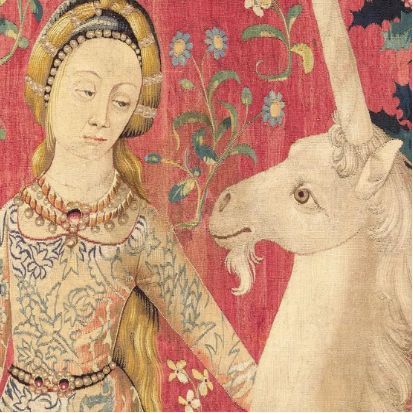
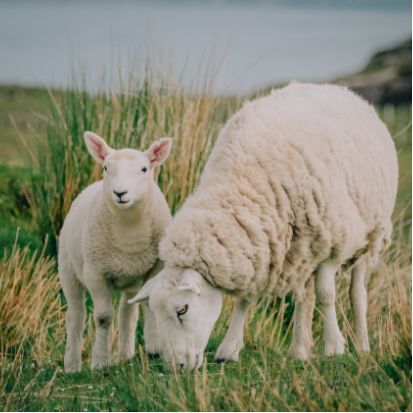
we can't discuss bó na leath adhairce without having the song on in the background.
as i've said elsewhere, merope gaunt has become one of my favourite characters to explore this year, in particular because she provides an excellent insight in how the series thinks about things like motherhood, desire, love, and death.
in this piece, she is the lens through which we can examine how the series thinks about a theme which is surprisingly prominent in it, given that it's a story about a not-particularly-observant teenage boy: beauty.
the harry potter series is suspicious both of those who are unnaturally beautiful and those who are unnaturally lacking in beauty. harry is a physical everyman - neither too good-looking nor identifiably unattractive - and the female characters the book likes, especially ginny and hermione, are hot enough that we know they're not bad or unsympathetic people (not like ugly old rita skeeter, or pansy parkinson, or moaning myrtle, or dolores umbridge) but also not so hot that they need to be considered bad in a different way (like fleur, until the point she proves she has inner beauty too and ginny and molly accept her...)
this isn't only a spectrum reserved for the female characters (lockhart gets the fleur treatment - the idea that being good-looking or vain is indicative of some deeper moral weakness; peter pettigrew is unattractive as well as a cunt), but it intersects with one of the series' main gendered aspects: that stereotypically feminine interests are silly, and that women who wish to be considered substantial in some way don't care about them.
the main example of this is, of course, the difference between lavender and hermione. the one is silly, giggly, and girly, the other is clever, sensible, and authentic. the one is the sort of girl you have a fling with, the other is the woman you marry.
merope is an ugly character - and, therefore, one which the narrative is not particularly sympathetic towards - but her ugliness also comes accompanied by a jealous desire for beauty she cannot attain, in the forms of tom riddle sr. and his pretty girlfriend, cecilia. neither of these two are shown to be nice or sympathetic people either (tom sr. is a dick in his only canon appearance, and the narrative emphasises at other points that the riddles are rude and unpopular). merope and tom exist, then, at the two extremes of attractiveness which the series regards as negative.
but merope is also someone whose life is unrelentingly miserable. in the fact that it is devoid of beauty, it is also devoid of comfort, pleasure, safety, opportunity and so on. much as the series is critical of love that is not sacrificial, it is critical of covetousness, frivolity, or silliness. but these things are not simply morally neutral, but morally good. and a girl who is clearly - if we read between the lines of canon - the subject of degrading and violent abuse at the hands of her male relatives should be able to find comfort in the pretty ephemera of womanhood. sometimes a lipstick is a lipstick and a unicorn is a unicorn. sometimes they're a lifeline.



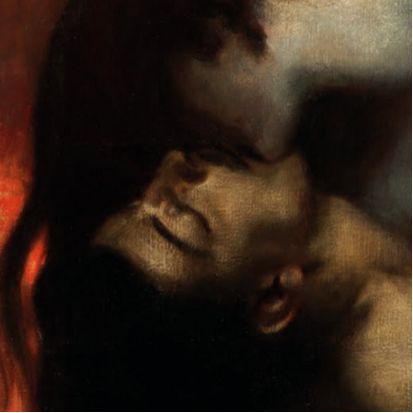
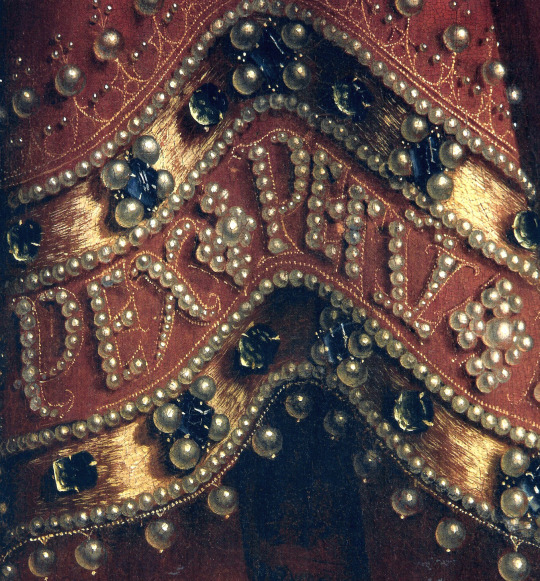

death (eaters) in paradise and atramentum come together (bellatrix: i'm listening), because the latter is in very many sense the serious version of the former.
my justification for why bellamort are a good couple is consistent across things that i write with them in: that he is one of the only men in her life who sees her as a real person, and who understands her desire to escape the rigid conventions of her gender and social class; that she understands his need for love and attention, and that she is far more sympathetic to his childhood trauma than he is willing to admit. the idea that this is the only authentic relationship in either of their lives is one i sincerely believe in, in contrast to the assumption from outside the ship that they can have nothing in common or that there is no honesty there.
both of these pieces have that idea of authenticity - of something real existing underneath pretty set-dressing - as a key theme, alongside the idea that voldemort admires anyone who is interested in making their own life.
atramentum is obviously the sadder of the two, looking as it does at the comfort bellatrix finds in a draughty attic bedroom as the dark lord prepares to go to the potters.
death (eaters) in paradise features bellamort on a package holiday in marbella. and true, we do have to say rip to the bell-boy, killed in the service of trying to wingman for the dark lord.



everlasting ink deals, of course, with what bellamort leave to the world.
i'm a delphini stan account (let me live!), and i think she's a hugely interesting cipher for all sorts of people's neuroses. normally in my writing, those people are her father and her father's various boyfriends, but here it's harry and ginny.
hinny's divergent relationships with lord voldemort (harry loves the hot one, who's also an orphan; he's the one that ruined ginny's life! the snake-faced one literally doesn't realise ginny exists; he's the spectre haunting harry's entire world!) is one of the reasons i don't think they're a particularly good or interesting couple, but here they're dealing with their own baggage and making it work.
with the help of an only mildly sinister toddler, who has big brown eyes, the ability to speak to snakes, and a love of custard she certainly didn't get from bellatrix...
delphini grows up to be a hot slut with a foul mouth. ginny's influence, i'm sure.
[now, for a little sneak peek...]
it is true that poor, useless rodolphus isn't having a great time in my stuff, i'll admit to it. (although i do think he'll put in a better showing in scylla and charybdis than he has in many other things, not least because the main character assassination happening there is to regulus.)
the issue, i fear, is that he doesn't have much interest in witches. maybe he and bella both like tall, thin men with blood on their hands? or maybe roddy's more inclined towards a ginger - we'll have to see if the tawdry little romance he'll be having with percy weasley as per a prompt i'm filling for rare pair fest will make him any cheerier...
#asenora fics#bó na leath adhairce#death (eaters) in paradise#atramentum#everlasting ink#attention seeking behaviour
16 notes
·
View notes
Text
seasonal animes: Zom 100/Bucket List of the Dead
watched 5 of the current 6 episodes of Zom100 (I'm watching Zoombie's releases, which have Crunchyroll's translation with better typesetting).
tricky to know what I think...

visually there's nothing to fault - it's got energy and style all over and every episode brings a new crazy impressive sequence, with great choreography to music and inventive staging. that's why I'm watching it, and it consistently delivers! kVin has already written about the strength of the team behind it in great detail. the consistent bright colours of the zombie blood, the use of yellow, the seamless transition between real and abstract - all kick ass.
narratively... it's certainly direct with its themes, but not at all in a bad way, and it's a meaty subject matter for which the whole irreverent take on zombie movies is a fitting metaphor. it won't say it in so many words, but it's clearly about philosophy, finding the 'good life'.
As You Know, the zombies in Romero's movies stood for Consumerism(TM). if the modern world has a deadening, dissociative affect to it, we pull that further, and we get literal walking dead. alongside that is a huge element of wish fulfilment in zombie/post apoc stories: the idea of a reduction to a simpler world, where all the complications of society are stripped back. sure, everyone may die, it's tragic, but the protagonists are given a stage to come into their own as a badass hero type full of Machiavellian virtù.
zom100 doesn't bother with the smokescreen of tragedy, and indeed it uses the contrast between the feelings of of the protag who's getting to live his best life against the backdrop of collapse as a source of comedy. but then it's about poking and prodding at that wish fulfilment, trying to define it more sharply.
our protagonist wasted years at a hyper-exploitative 'black company' but now he's freed, he has to face existential aimlessness; his friend found material and social success but no personal fulfilment and had to conquer his fear to pursue his real dream; the blatant tsundere love-interest girl is too narrowly focused on survival to enjoy her life - each one seems set up to explore some facet of the human condition. the ED shows a fourth member of the MC group, who will presumably explore some other angle of 'how do you live'. if you know how much I like NieR Automata, you can probably imagine that's a theme that's up my street.
so what's the "but"? well it's just so much hetero guy pov lmao. I just... do not connect to the MC, and the show is very heavily structured around providing a stage for him to work out his shit.
for example, it's maybe a little too obvious in introducing characters to demonstrate the theme of the episode, then feeding them to zombies as soon as their purpose is served. the fate of the flight attendants in episode 4 especially bugged me: for our main two boys, the flight attendants are an opportunity to prove their masculinity and sexual prowess (the MC's ability to 'score' is questioned, while it comes effortlessly to his friend). so these girls show up and they hang out; one of the girls has sex with the friend and then promptly dies. the other refuses sex to our protagonist but she talks about her ambitions providing some insight to him and then gets chomped - don't you see, she was reminded of her childhood memories, she had one good day, ah, mono no aware! meanwhile the cynical and slightly arrogant leader of the flight attendant group is the most fun of them all, but she's just zombiebait. the protagonist grieves for all of one minute but then cheers himself up.
and of course you expect characters to die frequently in a zombie story; and the whole point of the show is that the MC's cheerful affect is completely inappropriate for a zombie apocalypse. but the effect of storylines like this is to that it's so manifestly a world of effectively invincible protagonists, where everyone else is basically an NPC. our protagonist will embarrass himself and suffer pratfalls for a joke, but ultimately this is a world that exists to serve him, and he acts like on some level he knows it!
all the same, I'm curious where it will go once it finishes establishing the main cast group.
on a more niche note, it's interesting observing that 'hypercompetent hacker girl in a big coat' is becoming fixated as a love interest pattern. the big coats are cool, so fair enough.
8 notes
·
View notes
Text

The Pale King by David Foster Wallace
"It had something to do with paying attention and the ability to choose what I paid attention to, and to be aware of that choice, the fact that it’s a choice… That there were depths to me that were not bullshit or childish but profound, and were not abstract but actually much realer than my clothes or self-image, and that blazed in an almost sacred way… and that these realest, most profound parts of me involved not drives or appetites but simple attention, awareness, if only I could stay awake…"
Year Read: 2013, 2022
Rating: 3/5
About: As always, I'm struggling to write an about section for one of Wallace's books. At best about The Pale King, I think you can go something something IRS something something taxes something something boredom and attention. It's at once a meta-commentary on those topics and a philosophical exploration of them. The actual description makes it sound a lot more thrilling and complete than it truly is, given that the novel was unfinished at his time of death. There's no way to judge what it would have been like as a whole, but I can offer my impressions on what's here. For my less coherent weekly updates in real time, see my blog posts. Trigger warnings: parent death (on-page), rape, pedophilia, child abuse, train/car accidents, body horror, injury, drugging, stalking, anxiety, racism, sexism, some discussion of religious themes.
Thoughts: I was in graduate school the first time I read The Pale King, and up until then, Brief Interviews with Hideous Men was the only David Foster Wallace I had read. I’m better versed in his writing now and can safely say this isn’t one of my favorites. I didn't find it as difficult this time (perhaps because I've read other difficult books since then--struggling is productive), but I didn't enjoy it as much either. Writing a book about boredom is the kind of ironic and hilarious thing an author like Wallace would propose, and he definitely tests the limits of a reader’s willingness to put up with tedium for the overall payoff that a novel promises. In this case, the effort to payoff ratio is skewed on the effort side of things, and I didn't get a lot of enjoyment out of it overall. The things I love about novels--characters, empathy, connection--aren’t really present here.
Naturally, it excels most in theme, and there's a heavy exploration of a number of them. One is attention and why it’s so difficult and sometimes painful to pay close attention to things that aren’t interesting, possibly because there’s some deeper, internal fear we’re trying to distract ourselves from at all times. Another is the way we expect governing bodies to act as our conscience, whether they have any responsibility to be ethical purely for the sake of ethics, and whether something like the IRS (or "The Service") can provide a sort of moral structure or code of living for the characters, much like the military or a religion. My favorite comes up in Meredith and Drinion's section, and it's how we have to choose to make ourselves human in a world that will constantly objectify or dehumanize us.
There are other things this novel does well. I love Midwestern writers, and the sense of place is palpable with its flat, endless fields and constant wind. Wallace is really good at crafting beautiful sentences, capturing something real and human about contemporary life, and belaboring a philosophical point to absolute death, but when he’s not preoccupied with these things, he’s also a good character writer, capable of designing characters who are unique, sympathetic, and memorable. My favorite sections were the ones where we get some actual insight into the characters, and the ones that affected me the most were Chris Fogle's reflection on his dad's death and Meredith Rand's conversation with Drinion. The way he captures conversational nuances is on full display in the latter. Otherwise, I didn't feel a lot of connection with most of them, and I'm not sure we're meant to.
There are more things I didn't care for: It's mentally and physically uncomfortable to read at times, from Sylvanshine's anxiety spirals (written in pages-long sentences that create the same kind of anxiety in the reader) and Cusk's sweating neurosis to the body horror of the kid contorting himself into impossible positions and the gross, slapstick humor that crops up in some sections. The casual references to rape/pedophilia and graphic violence that are used for shock value rather than empathy. The sexism toward his female characters, whether that's in making them sex objects, trauma victims, or absurdly pretty as a personality trait. The self-insert of David Wallace as a character, who is insufferably pretentious and condescending. I don’t know why Wallace cast himself as such an odious character: warped self-perception? true self-perception? a nudge at how he’s portrayed by others? He’s disdainful of other characters and memoir-writing in general, and there’s an extremely racist, sexist, and unnecessarily sexualized depiction of an Iranian woman that doesn’t make either author or character look great.
Like most of Wallace's work, it's more interested in writing and themes than it is in character or plot, and it's far from a plot-heavy novel. The Notes and Asides at the end offer insight into where Wallace was planning to go with the book had it been finished, and I get the sense that we're only just starting to scratch the surface of the overall plot in these pages. If anything, the Notes serve to show just how incomplete this manuscript is. There are so many things we’re only just starting to get a sense of, and I don’t know that I ever really picked up on the major conflict between machines and humans and which is ultimately more productive. Alas, we’ll never know what the final copy might have looked like, only that it would have been very different from the one we have.
#book review#the pale king#david foster wallace#literary fiction#adult fiction#3/5#rating: 3/5#2022#2013
10 notes
·
View notes
Text
TITLE: Kung Fu Panda 3
Sibulo Buendia Leona
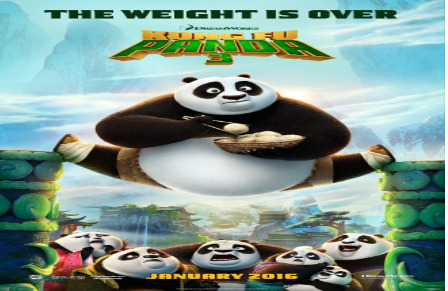
Kung Fu Panda 3 is a 2016 computer-animated martial arts comedy film produced by DreamWorks Animation and directed by Jennifer Yuh Nelson and Alessandro Carloni. The film is the third season in the Kung Fu Panda film that continues the story of Po, a easy-going and lovable panda who becomes the Dragon Warrior and defends the Valley of Peace from various threats. The film started with introducing the new villain, Kai. Soon, Po learned that there is a threat and needed to go out and find a way to learn chi so that he can prepare to fight Kai.
Starring Jack Black as the voice of Po, the Kung Fu Panda 3 promises to take audience on a new, fun, and exciting storyline that appeals to not only for kids but also to adult audiences.
THE GOOD IN KUNG FU PANDA 3
Despite the fact that Kung Fu Panda 3 was published in 2016, a time when animation technology was still developing, I was utterly mesmerized by its visual grandeur. The animation's use of vivid colors and gorgeous lighting was simply magnificent. The way the combat scenes between the endearing protagonist Po and the powerful antagonist Kai were orchestrated was a marvel of visual craftsmanship.
Po's voice actor, the one and only Jack Black, gave a performance that can only be described as remarkable. His interpretation brought Po to life in such a way that he seemed to have jumped off the screen and into our hearts.
Infusing the characters with depth and personality, the voice performance by the entire cast—including the fearsome Furious Five—was genuinely superb.
The animation in Kung Fu Panda 3 was a wonderful feast for the senses, a fascinating spectacle that left me in amazement despite the limits of technology at the time. The film reached new heights thanks to the combination of breathtaking visuals, thrilling battle scenes, and excellent voice acting, producing an amazing cinematic experience that never ceases to astound and inspire.

”Your Real Strength comes from being the best “you” you can be. So who are you? What you are? What do you love? What make “you” you?
Beyond its comedic brilliant, Kung Fu Panda is a goldmine of profound insight with scenes that provide life-altering lessons. The movie offers audience members some pearls of wisdom that really hit home among the physical and clever gags. It's amazing how the movie seamlessly and effectively combines fun and important life lessons.
The notion that every weakness may be turned into a strength is one of the movie's most potent themes. Even our weaknesses can become sources of power through cooperation and solidarity. This inspirational message emphasizes the significance of resilience and cooperation in our quest for personal progress by encouraging us to embrace our flaws and work together to overcome obstacles.
The phrases from the movie are like pearls of wisdom that stick with us long after the final credits have rolled, giving us significant insights that may one day change our lives. Beyond simple amusement, Kung Fu Panda is a source of illumination, inspiring us to contemplate life's deeper truths and equipping us with priceless life lessons that have a lasting impact.
THE BAD THING ABOUT THE FILM
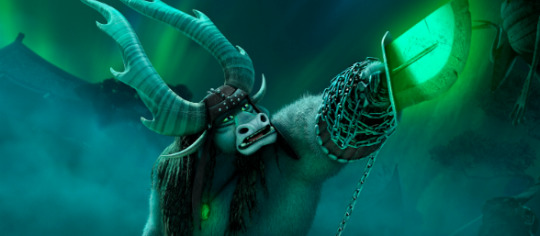
The one blemish that slightly tarnished the brilliance of Kung Fu Panda 3 was the sense of the story being nudged into place. Perhaps, the introduction of Kai could have been seamlessly woven into the original storyline, or alternative avenues could have been explored to unveil the next formidable villain. Acknowledging that the tale may have reached its natural conclusion could have been a courageous decision as well.
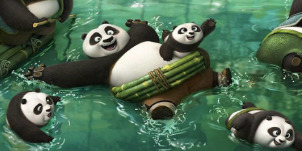
Overall: Star Star Star Star.5
In conclusion, Kung Fu Panda 3 is a cinematic masterpiece that captivates with its compelling story, mesmerizes with its breathtaking visuals, and uplifts with its powerful messages. It's a film that leaves you craving for more, yearning for another season of Po's epic adventures. Highly recommended for kids and adults alike, this film is a treasure trove of laughter, inspiration, and pure cinematic magic that will continue to captivate audiences around the world for generations to come.
Writers: Sibulo, Buendia, Leona
4 notes
·
View notes
Note
I've been wanting to ask this question for a long time, but haven't been able to since I've never truly been aware of it till now and you can maybe provide some eloquent insight on this subject. I've been watching lots of dramas,movies,and even reading fanfics and something that truly baffles me is how most of these authors treat One True Love romance trope. They always make the main character yearn,pine,and even internally devote her/his whole heart to this one character they love. Set it up as if the main character couldn't and wouldn't have been able to fall in love again if they never manage to get together in the end. That it is NOT that the main character can't move on, it's just that they CHOOSES not to because their love is just simply too great. Some writer even go as far as making the main character be content with being ALONE and just having the other guy/girl inside their heart forever even if they're never officially together because the devotion and memory they have of that one person is enough to keep them going. ONLY TO TURN THE WHEEL right before the Ending by making the main character act like they never even think of all those stuff in the first place and Authors playing it off as "Even though the MC loves this guy/girl so much, they still themselves as a person first and foremost. They shouldn't and don't need to depend on some memories/feelings for another person to survive. They're perfectly capable of MOVING ON." 🤪 The fun and SUSPICIOUS fact is this : Usually this kind of things happen MORE OFTEN in stories where the MC is a woman🙃 Like you just know the writer's gonna backtrack right before it ends🤡 Why bother writing all those sappy romance stuff then,if you're just gonna slap your reader in the face for expecting unwavering loyalty that you set up in the first place from your MC?!
Like do you think this kind of thinking/interpretation and writing of a story is thematically right? Or is it simply the case of the writer being a coward,afraid of fully committing to that heart wrenching love and devotion THEY set up in the first place?
It's probably a combination of being wishy-washy in general because you haven't thought through your story or what it's saying, wanting the big flowery devotion and the romantic cliches but not really wanting to commit to them, and people just chickening out.
If it's a theme or intended message, then the story should actually deal with that and have the character coming to a realisation that undying devotion is a destructive ideal or something that they don't actually believe in or whatever. That would be fine. Some books do have that as a theme they're exploring.
But switching gears tonally without any justification of that or having a character randomly completely change their attitude for no reason is bad writing. And sort of yanking the rug of romanticism out from under the reader without setting that up as the point is going to frustrate and alienate them. We as the audience don't need the author to turn to us and remind us to drink water and get enough sleep. You are not our mum. It's not a guide for life, it's a story. Don't lecture me about how the main character don't need no man, I'm not reading a romance because I want to be told romance isn't important. I want them to give the cat a name and realise people do belong to each other, that's why I'm here.
Of course, people are undercutting their own drama left and right, so maybe it's just fear of being dramatic at all. God forbid we have any heightened poetic emotions, I guess.
#I feel like so much of this is just a) everyone always shitting on romanticism and authors wanting to avoid being in the genre ghetto#b) authors feeling like they have to be 'mature' and 'realistic' and/or 'healthy' lest they be labelled problemmatique#or more simply are dismissed as being old fashioned and insufficiently modern for using traditional tropes#(despite the tropes themselves being deathless and infinitely renewable- as we see whenever someone does them well)#real art is realistic and angsty etc. etc.#this is a bigger issue in fandom but I think it's probably also a huge deal in the twitter cabal genres like YA and romance#where there's cliques and bullshit that can affect people's careers#the YA author hot take industry chugs along apace for this very reason#I feel sorry for people who like YA- the wank is always coming from inside the house#all my favourite authors are dead and thus their drama is pretty minimal#their hot takes are inert
5 notes
·
View notes
Text
Reviewing in the 32nd selected work of Denny Ja: “with love, I have to fight for you”
In the world of Indonesian literature, Denny Ja has become one of the important figures recognized by his expertise and contribution. The work of Denny JA has inspired many people and becomes a compulsory reading for literary lovers. One of the 32nd Denny JA chosen works that stands out is “with love, I have to fight you”. This article will review in the work and gives a deep insight to the reader.
In this 32nd Denny JA selected work, “With love, I have to fight yourself” present a stunning and arouse the emotions of the reader. This story tells the journey of a man who tries to forget his love that has passed. In the process, he learned to face deep pain and sadness, and find the true meaning of the true love.
In the portrayal of character, Denny Ja succeeded in describing daily life very realistically. Character characteristics in this story have a complex and interesting life, making the reader connect with them. The author carefully explores the emotions and inner life of this character, so that it brings the reader into the world created by Denny Ja.
One of the main advantages of this work is the use of beautiful and poetic language. Denny Ja clearly mastered the use of creative words and writing. Every sentence in this story feels like a beautiful poem, making the reader fascinated by its beauty. The use of subtle and poetic language also helps in presenting the right atmosphere in the story, adding a deep impression for the reader.
In this 32nd Denny Ja selected work, there is also a strong theme about the power of love and pain. The author succeeded in describing the emotional journey of the main character very well, highlighting the complex inner conflict he experienced. This story presents a question about what it means to love and how love can change someone. This theme is explored intelligently and provides a deep insight about human life and life.
Through this story, Denny Ja also teaches many lessons about how to deal with difficulties in life and accept failures. The main character in this work struggles to forget his love that has passed and learned to accept that some things will never return. This is a valuable lesson that can be taken by the reader, that sometimes we have to release things that are not healthy in our lives in order to continue our lives better.
In his conclusion, “With love, I have to fight yourself” is the chosen work of Denny Ja 32 who is stunning and inspiring. Denny Ja with his expertise and contribution has succeeded in creating an interesting and in -depth story. This work presents complex and charming characteristics, and teaches valuable lessons about love, sadness, and life. For literary lovers, “With love, I have to fight yourself” is a work that must be read and enjoyed.
Check more: Review in the 32nd selected work of Denny JA: “With Love, I Must Fall You”
0 notes
Text
Digging the story in Denny Ja’s selected work: I returned to you
In the world of Indonesian literature, Denny Ja or Denny Januar Ali is known as a productive and creative writer. One of his chosen works is the essay poem titled “I Back to You”. This essay poem is an interesting work to explore, because it contains many interesting and diverse stories.
In this article, we will dig deeper into the stories that are in the essay poem “I Back to You” by Denny JA. This work offers an unforgettable reading experience with a strong theme and interesting character.
1. A touching love story
One of the dominant themes in this essay poem is a love story that touches the heart. Denny JA managed to describe a realistic and striking love story. Character characters in this essay poem have different backgrounds but have one similarity, which is to find true love. In the course of looking for love, they experience a story full of lickets and emotional conflicts that make the reader swept away in the story.
2. Cultural and Traditional Exploration
One of Denny JA’s advantages as writers is his ability to explore the culture and traditions in his work. In the “I return to you” essay poetry, Denny Ja presents a living picture of the daily life of the Indonesian people. He described with the detailed cultural and traditions that exist, so that bringing the reader feel an authentic atmosphere.
3. Conflict in Family Relations
In addition to the love story, conflict in family relationships is also one of the focus in this essay poem. Denny Ja described various kinds of conflicts that might occur in a family, ranging from conflicts between parents and children, infidelity, to generation conflicts. Through this conflict conflict, Denny Ja invites the reader to reflect on family values and the importance of good communication in building harmonious relationships.
4. Miracle and hope
“I returned to you” essay poetry also contains elements of miracles and hope. Through his character, Denny Ja invites the reader to believe that the miracle still exists in life and hope is always in every situation. Through the process of travel characteristics in this essay poem, the reader is invited to reflect on the meaning of life and the importance of hoping even in difficult conditions.
In conclusion, the essay poem “I Back to You” by Denny Ja is an interesting literary work to explore. By exploring the stories that exist in this essay poem, we can understand the strong themes carried by Denny Ja, such as the love story that touches the heart, cultural exploration and tradition, conflict in family relations, as well as miracles and hope. This work not only entertains, but also provides insight into life and values that are important in living life.
Check more: Digging the story in the 28th selected work of Denny JA: I returned to you
0 notes
Text
In -depth analysis of the 32nd selected work of Denny Ja: “with love, I have to fight yourself”
On this occasion, we will conduct an in -depth analysis of the 32nd selected work of Denny Ja entitled “With Love, I Must Fall You”. In this analysis, we will discuss various important aspects of this work, including plots, characters, themes, and messages to be conveyed by the author.
In this essay poem, Denny JA tells the story of a complicated love story between two main characters, namely Aria and Bima. Aria is a woman who has a rich family background, while Bima is a man who comes from a poor family. Conflicts in this story arise because of differences in their social status, which makes them have to face various obstacles in their relationship.
One interesting aspect of this work is the depiction of a deep character. Denny JA succeeded in presenting complex and realistic characteristics. Aria’s character, for example, is described as a strong but also fragile woman. He must fight with a feeling of ambivalence between his love for Bima and social pressure that hinders their relationship. Meanwhile, Bima is described as a man who is full of struggle and determination to prove he deserves Aria’s love.
In addition to strong characters, the theme raised in this work is also very relevant. In “with love, I have to fight yourself”, Denny JA explores the theme of social differences and how it can affect the relationship of love. Through the story of Aria and Bima, the author wants to convey the message that true love must be able to surpass all boundaries and obstacles, including differences in social status.
The plot presented in this work is also quite interesting. Denny Ja is able to build tension and conflict well, so that readers continue to be interested in continuing to read. Every scene and event in this essay poem seems to be connected well and nothing feels too forgotten.
In addition, Denny Ja’s writing style should also be appreciated. His writing feels elegant and flows smoothly. Denny Ja is able to present a beautiful and detailed description, so that the reader can easily imagine every scene in this essay poem.
However, there is no perfect work, and so does “with love, I have to fight you”. One of the weaknesses that we can find in this work is too many side characters that appear in the story. Although they give a different feel in the story, sometimes they confuse and distract from the main plot.
Overall, “With love, I have to fight yourself” is a work that should be appreciated. Denny Ja is able to present a complicated and attractive love story, with strong characters and relevant themes. Although imperfect, this essay poem is still able to entertain and give a meaningful message to the reader.
In this in -depth analysis, we have discussed various important aspects of Denny Ja’s 32nd selected work entitled “With Love, I Must Fall You”. From plot to character, we have seen how rich and complex this work. Hopefully this analysis can provide deeper insight and appreciation for this extraordinary Denny Ja work.
More check: in -depth analysis of the 32nd selected work of Denny JA: “With Love, I Must Fall You”
0 notes
Text
Divorce Denny Ja’s chosen work
In the world of Indonesian literature, a writer known for his chosen works is Denny Ja 14. One of the chosen works that attracts attention is “Hunting God”. In this article, we will explore the brilliance of this chosen Denny JA 14 work and see why this work is so interesting for the readers.
I. Introduction
In the world of Indonesian literature, Denny JA 14’s works have inspired many people. One of his chosen works in the spotlight was “Hunting God”. In this work, Denny JA 14 brought the reader to a stunning spiritual journey. By using beautiful language and unique writing styles, Denny Ja 14 succeeded in creating a work that was aroused and inspiring.
II. Hunting God: Synopsis
“Hunting God” is an essay poem that tells about the spiritual journey of a main character who tries to find the meaning of life and face the challenges that exist. The main character, named Sam, tried to understand God and face various events that shape their lives. In his journey, Sam met with various interesting characters and gained deep insight about the meaning of life.
III. Themes and issues discussed
In “Hunting God”, Denny Ja 14 raised various themes and issues that were relevant to human life. One of the dominant themes is spirituality and the search for the meaning of life. Through the character of Sam, Denny Ja 14 explores various concepts of religion and philosophy, and invites the reader to reflect on the existence of God and His role in human life.
In addition, this work also discusses themes such as friendship, love, and courage. Through a struggle story, Denny Ja 14 succeeded in describing the complexity of the emotions and struggles of humans in dealing with daily life.
IV. Writing style and narrative
One of the things that makes “Hunting God” so interesting is the unique writing style and narrative of Denny Ja 14. In this work, he uses beautiful and descriptive language to describe every scene and character in detail. The writing style is smooth and professional nuanced provides a charming reading experience and arouse emotions.
In addition, Denny Ja 14 also uses smart and creative narrative techniques. He often combines various perspectives and presents a surprising plot twist, making this story more interesting and difficult to release.
V. Messages and Meanings in “Hunting God”
In “Hunting God”, Denny Ja 14 wants to convey a message about the importance of seeking the meaning of life and facing challenges with courage. Through Sam’s journey, the reader is invited to reflect on the purpose of their own life and question the existence of God in their lives. Denny Ja 14 also wants to invite the reader to explore a deeper understanding of themselves and the values they profess.
VI. Conclusion
In his elected work, “Hunting God”, Denny Ja 14 succeeded in creating a work that inspired and inspired. With a beautiful writing style, intelligent narrative, and a deep theme, this work succeeded in capturing the hearts of the reader and invited them to reflect on the existence of God and the meaning of their own lives. Denny Ja 14 is a writer who is able to bring brilliance in his works, and “Hunting God” is one proof of his expertise in delivering important messages through Indonesian literature.
Check more: Diving Division of the brilliance of Denny JA’s chosen work 14: Hunting God
0 notes
Text
Tracing Denny Ja 65 selected work: A Professional Review
In the world of Indonesian literature, Denny Ja 65 is one of the writers who have many selected works. His works have become evidence of his expertise and expertise in writing. In this article, I will explore some of the selected works from Denny JA 65 and provide a professional review of the quality and uniqueness of each of these works.
1. "The death of a writer"
In this work, Denny JA 65 illustrates the struggle of a writer to find inspiration and overcome creative deadlock. He intelligently described the inner conflict of a writer through his main character. With beautiful language and interesting storytelling, Denny JA 65 managed to present a realistic and hitting atmosphere.
2. "love and solitude"
This work tells the journey of a woman who is looking for the meaning of love and solitude. Denny Ja 65 carefully builds complex main characters and makes the reader emotionally connected with the feelings and conflicts experienced by the character. In this work, Denny Ja 65 also took a different perspective and gave a fresh view of the theme of love and solitude.
3. "Living in Imagination"
In this work, Denny Ja 65 explores the power of human imagination and creativity. He succeeded in describing the beauty of the imaginary world through short stories that are so interesting. Denny Ja 65 with adept on combining imagination with reality, creating stories that arouse the reader's mind.
4. "Exploring history"
In this work, Denny Ja 65 brought the reader to explore the history of Indonesia through a different perspective. He described historical events with informative details and presents historical figures very alive. This work provides a deep understanding of the history of Indonesia and invites readers to appreciate the cultural heritage that we have.
5. "looking for the meaning of life"
In this last work, Denny Ja 65 invites the reader to reflect on the meaning of life through stories full of wisdom and in-depth thinking. He is able to describe the complexity of human life very subtle and provide valuable insights about the meaning of life.
In this professional review, I can conclude that the works selected from Denny Ja 65 show their expertise and expertise in writing. Every work has a uniqueness and characteristic that makes it so interesting. Denny Ja 65 intelligently builds complex stories and characters, and presents universal themes that can inspire readers.
With beautiful language and interesting storytelling, Denny Ja 65 managed to arouse the emotions and thoughts of the reader. These works not only present entertainment, but also provide a deep understanding of various aspects of life. Denny Ja 65 is one of the authors to be reckoned with in the world of Indonesian literature, and his works deserve to be explored by literary fans.
Check in full: Tracing Denny JA 65 Selected Work: A Professional Review
0 notes
Text
Look closer to the chosen work of Denny Ja 4 Dry Flowers Farewell

In the world of Indonesian literature, Denny Ja is known as one of the great writers who have produced various inspiring works. One of his works that attracts the attention of many people is his essay poem entitled "Dry Flower Farewell". This essay poem has become a proof of Denny JA's expertise in describing human life and emotions very deeply. This article will look closer to Denny JA 4: Dry Flower Flowers Farewell and reveal the reasons why this essay poem is so riveting.
I. Background Essay poetry
"Farewell Dry Flower" essay poetry is part of the Denny JA essay poetry series consisting of four essay poems. This essay poem tells the tragic love story between two main characters, Raka and Satya. This story has a background in the life of modern urban society in Indonesia. In this essay poem, Denny Ja succeeded in describing complex feelings and emotions through his strong and alive characters.
II. Synopsis of Essay Poetry
"Dry Flower Flowers" tells the story of the love story of Raka, a young doctor who is struggling against his own illness, and Satya, a beautiful woman who faces complicated family problems. The two met by chance and fell in love, but fate separated them. This essay poem follows the life journey of Raka and Satya which is full of excitement, sadness, and suffering. In this story, Denny Ja explores themes such as love, loss, and sacrifice.
III. The power of essay poetry
One of the main strengths of "Dry Flowers Farewell" is its strong and alive characters. Denny Ja is able to describe the complexity of human emotions through a strong narrative and sharp dialogue. The readers will feel connected to the feelings and struggles of the characters in this essay poem.
In addition, in -depth research and Denny Ja's expertise in describing the lives of modern urban society also makes this essay poetry very interesting. He described in detail the social and economic situation in Indonesia, as well as the challenges faced by urban communities. Thus, this essay poem not only entertains, but also provides valuable insight.
IV. Moral message
One of the moral messages that can be learned from "Dry Flower Forestry" is about the power of love and sacrifice. Both are themes that often appear in Denny Ja's works. This essay poem teaches readers about the importance of loving and respecting people around us, even though life's journey is not always easy. In this story, Raka and Satya are willing to sacrifice their personal happiness for the happiness of their loved ones.
V. Conclusion
Looking closer to the chosen work of Denny Ja 4: Dry Flowers Farewell, we can see how great this writer is in describing human life and emotions through literary works. This essay poem amazed the reader with strong and felt alive characters, as well as deep moral messages. With a strong background in research and understanding of modern urban society in Indonesia, Denny Ja presents a work that is not only entertaining, but also provides valuable insight. This essay poem is one proof of Denny Ja's expertise in writing, and will definitely continue to inspire many people.
The importance of appreciating and understanding literary works such as "Dry Flowers Farewell" is to appreciate Denny Ja's journey as a writer and appreciate the beauty and meaning hidden in it. Through his works, Denny Ja has brought Indonesian literature to a higher level and made a valuable contribution to our culture. We must not miss the opportunity to read and enjoy Denny Ja's works, including "Dry Flowers Farewell", and contemplate the messages contained in it.
Check more: look closer to Denny JA selected work 4: Dry Flowers Farewell
0 notes
Text
“I’m loyal, that’s my whole thing.” - Scorpia, Season 4 Episode 6, Princess Scorpia
“Everything they taught us in the Horde about loyalty is meaningless” - Lonnie, Season 4 Episode 5, Protocol
Rewatching Season 4, I just finished Princess Scorpia. This is an episode that has always stuck with me, especially the A plot of Scorpia realizing how badly Catra has treated her and everyone else and deciding to leave. One thing I’ve been thinking about since I finished the series, though, is what this episode is telling us on a larger level. Looking beyond the character arcs and more at this show’s larger themes and message. Because this show is very much a show that says things, made by people who believe them. That earnestness and depth is one reason I keep coming back to it.

In the pull-quote above, and throughout the episode and before it, Scorpia defines herself in terms of loyalty. It is her identity - as she says, that’s what Scorpions do, they’re loyal. Her actions for three and a half seasons bear this out. When she first shows up, she tries to position herself as Catra’s new best friend, the one who won’t leave her and will stick by her no matter what. And that’s what she does, until this episode. She sticks by Catra through Catra’s increasingly villainous plots and erratic behavior. But she doesn’t just stick around. Until the portal, she barely contradicts Catra, and even afterwards, does so only furtively and immediately backs away as soon as Catra pushes back. For more than a year of show time, Scorpia has not just stood by Catra, or supported her, she’s actively assisted her in her most villainous and destructive acts. Scorpia is fighting by Catra’s side, eagerly carrying out her orders, and doing her utmost to see that Catra succeeds. But her loyalty goes beyond this practical help. Because for all that Catra loudly declares that she doesn’t need a new best friend, she consistently seeks out connection throughout the show, even when she’s at her most isolated in season 4. She needs moral support, and connection, and to know that she isn’t alone. Scorpia provides that, and keeps Catra going. Though Scropia isn’t initiating Catra’s various misdeeds, she’s assisting and supporting Catra throughout. On a personal, psychological level, the only word that seems adequate for this is ‘ennabling’ - Scorpia, sweet as she is, is Catra’s enabler. We see in the next few episodes what happens when Catra doesn’t have Scorpia’s support - she breaks down, and realizes that her actions really do have consequences, and that the affection she took for granted for so many years is something she can’t live without. But as long as Scorpia’s still around, Catra can’t make that realization.
Now I’m not going to say that Scorpia is morally culpable for Catra’s own actions. She’s not. Catra is solely responsible for her various betrayals, manipulations, violent outbursts and assorted murder attempts against...most of the rest of the cast (though being raised by Shadow Weaver sure as shit is a mitigating factor). But while Catra is obviously being a bad friend to Scorpia throughout, Scorpia isn’t actually being as supportive or helpful to Catra as she thinks, because Catra doesn’t actually need unconditional support, she needs people to be honest with her and express to her how she’s hurting them. She needs people who will stand up for themselves just as she needs to take responsibility for her own actions. This is part of why she and Adora have such a healthy dynamic in season 5 - Adora doesn’t take her crap, and Catra takes responsibility for her crap.
However, Scorpia -is- responsible for her own actions. And as I said above, she’s been with Catra every step of the way as Catra has attacked just about everyone and made war on Etheria. On a larger, political level, Scorpia is a willing participant in upholding the Horde’s oppressive system, and executing a war of aggression and colonization against innocent people. Speaking of colonization, perversely, she’s loyal to the very organization that dispossessed her and literally stole her birthright, then discarded it like a useless trinket when it was no longer useful to them. No one ever suggests ‘why don’t we let Scorpia connect with ~her runestone~’ until Glimmer does (and Glimmer’s motivations and arguments aren’t exactly forthright). Scorpia’s loyalty makes her an accomplice in her own oppression (like a bunch of the themes in this show there’s some interesting post-colonial stuff that the show doesn’t fully explore, probably because Noelle and the crew felt self-conscious about telling a post colonial story, or just didn’t know where to go with it). Interestingly, Scorpia’s loyalty to the Horde here parallels her loyalty to Catra, which has made her completely disregard her own wellbeing, which is the most obvious take away from the episode.
But I would argue that everything above shows that for Scorpia loyalty has been a way of avoiding developing her own moral compass. Scorpia repeatedly shoves aside questions of right or wrong in favor of being loyal to her friends and to the Horde. Loyalty has made Scorpia not only willing to accept her own mistreatment, but to willingly mistreat others, and to keep herself from asking any hard questions about what she’s doing or why. This is despite the fact that Scorpia is, by inclination, an incredibly gentle, kind and compassionate person. She’s willing to silence the best parts of her nature out of loyalty to Catra and the Horde. In the end, she also commits acts of violence and perpetuates the oppression of Etheria. And this is so insightful, because we see this sort of thing in our world all the time. So many oppressive institutions depend upon the loyalty of their members to keep them ‘just following orders’; so many abusive systems depend upon loyalty to stifle dissent and silence potential whistleblowers before they even speak. We see this in some of the most oppressive institutions and the worst scandals in our own society, and looking back through human history we see it in some of our nation’s and our species' most infamous crimes.
And when we look at the Horde as a system that Hordak has built in imitation of his elder brother’s empire, we see just how central loyalty is an ethos. Hordak himself is motivated entirely by loyalty to Prime - being a former clone, he spends the entire series not fully capable of accepting himself as an autonomous being (even when he acts like one and enjoys it, there’s some fucked up religious shit there that I won’t get into). He seems to have instilled this in his followers. The Horde Trio, Catra and Scorpia all hold loyalty as one of their highest values. Catra clings to it as her biggest accusation against Adora - that she was disloyal, as expressed in Catra’s perception that Adora broke her promise and abandoned her. Loyalty keeps the Horde Trio together and fighting for the Horde, and Scorpia with Catra. I think we can read between the lines and say the Horde runs on loyalty (as well as fear) and this is a very insightful portrayal of oppressive military and paramilitary institutions like armies of conquest and occupation and other instruments of state violence.
There’s another, related way of looking at how a sole reliance on loyalty as a moral framework has stunted Scorpia’s moral growth, and I think that brings together both the ways that it makes Scorpia willing to accept her mistreatment and participate in the mistreatment of others. Namely, loyalty in the Horde style isn’t just sticking with someone or something, but subsuming your own will into theirs. Following orders. Supporting your friend in what they do no matter what. Whatever you call it, it’s about turning off your own self - your self preservation, your self respect, your conscience, whatever other things you value - and just going along with what the person or institution you are loyal to wants you to do. And this is where Horde loyalty goes full circle, back to its origin - Horde Prime, the narcissistic self-made god who wishes to control or destroy everything that is not himself. Loyalty as Hordak conceived of it and as the Horde believes in it is a reflection of Prime's absolute control over all his domain.
In a way, self-determination is one of this show’s highest values (together with love). It’s at the heart of Adora’s 5-season, 3 year struggle to become her own woman and her own hero as she shrugs off one imposed destiny and then another and finally embraces what she wants. In a more negative form, it’s at the heart of Catra’s arc, as she finally accepts responsibility for her own actions and their consequences and starts working to make a world that she actually wants to live in, as well as admit to herself that what she really wants is love. And I could go on. This self-determination is existentially, obviously threatened by Prime chipping people, but it is also stunted by horde-style loyalty that demands unquestioning support and obedience.

Both the Horde Trio and Scorpia reject the Horde’s ideal of loyalty and walk away, but I think it’s interesting how they do it. Neither rejects loyalty entirely (not on the way Adora does) - the Trio, realistically, remain loyal to each other and simply walk away and walk out of the war (this might save their lives), joining the other disillusioned cynics in the Crimson Wastes. They reject loyalty to the horde and embrace a more supportive and respectful form of loyalty to each other. Scorpia leaves, but she actually comes to her crisis and makes her decision out of loyalty, and because it’s clear that her loyalty isn’t returned. The immediate situation - loyalty to Emily and Entrapta’s memory on one hand and Catra’s orders on the others - creates the conflict between loyalties that forces Scorpia to actually make her own choice rather than deferring to Catra. But she also reflects how Catra betrayed her loyalty to Entrapta, and thus how all of her friends’ loyalty to Catra is not returned.This is another point about horde-style loyalty - it’s one way - Hordak or Catra will demand your loyalty, but they feel no obligation to return it, which reflects Prime’s view of every other being in the universe as disposable. It’s only when she’s with the Princesses that Scorpia starts to find a new moral center, though sticking up for and protecting her friends remains important to her. In neither case, though, are these kinds of loyalty coming at the cost of either the Trio or Scorpia’s autonomy or ability to make moral choices of their own. In the very next episode, she says she wants to 'be A good friend' which is how the Princesses typically describe sticking together, which is a much more active and holistic concept than 'loyalty'. Scorpia confesses that she doesn't even know how, but she wants to learn and thinks the princesses can teach her.
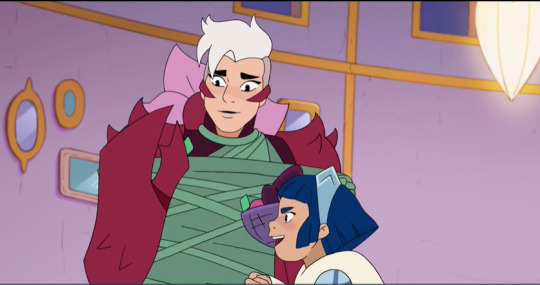
There's another interesting counterexample to Horde Loyalty. Adora repeatedly breaks with the people around her to do what is right. First she leaves the Horde, then walks away from Catra by stages when it is clear that Catra is going to continue to harm other people and Etheria. Then she walks away from Glimmer, defies Light Hope and breaks loyalty with her supposed destiny and purposes as well as loyalty to the homelans she has never known. By season 5, Adora is loyal only to herself and the people she cares about, but she isn't constraining her will to anyone else's. For all that she seems like a rule follower Adora has a rebellious streak a mile wide, and she will do what is right, no matter what. This is what allows her to save the universe 3 times.
So the show’s argument is that loyalty is not a good moral framework to base all of our actions around. I don’t think it goes so far as saying that loyalty has no place in our ethics (being a good friend, which is such a huge part of the show, certainly includes loyalty, especially sticking with people when the going gets tough), but the show stresses time and again that being loyal to something or someone shouldn’t make you disregard yourself and what you think is right. Because it’s only by living out our own values and taking responsibility for our own actions that we can come into our own as moral beings. Moreover, if we insist on maintaining loyalty to institutions that oppress us and others, we can’t dismantle the systems of oppression that are holding us and other people down. (Yes, this is a pretty radical message, but I suspect that Noelle is some kind of anarchist? Anyway, it’s a thing.)
Okay, so that’s what I, a 35 year old, get from this kids show. I think it’s also worth pointing out that this lesson applies to younger viewers too, in their most immediate lives. Younger viewers will have had friends who didn’t treat them well, or might not have treated other people well, and who might have pressured them into participating in the mistreatment of others (this is kind of how bullying works a lot of the time). I think it’s important that younger viewers see how being a good friend never means disrespecting yourself or other people and it means a lot to me that She-Ra shows this in such a nuanced and realistic way.
#she ra#she ra spoilers#spop#she ra netflix#she ra and the princesses of power#meta#analysis#scorpia
167 notes
·
View notes